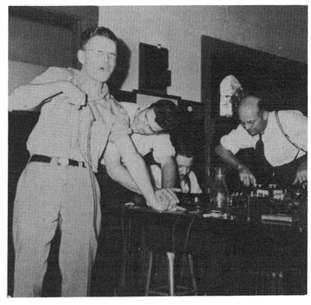Is there any specific guidance, code of practice or legislation which determines a safe working voltage for apprentices in a training facility (school)? Other than EAWR Reg 16, which states people require technical knowledge or experience, or under such a degree of supervision as may be appropriate to avoid danger. HSE INDG354 mentions as a rough guide that the use of voltages exceeding 50v ac or 120v ripple-free dc are hazardous in certain conditions.
So as an example, a first year apprentice wouldn't be expected to work on or near 240v ac (they are unaware of the risk). Only when they have gained suitable knowledge and experience through adequate training, would the risk be increased from a safe voltage. I'm not suggest apprentices can't train with 240v ac, but I would expect them to start on the theory and understand basic electrical principles before they are put at that risk. The start of an apprenticeship doesn't warrant a danger voltage to prove basic principles and electrical testing/theory.
All thoughts and opinions are appreciated.
Regards,
RJ

